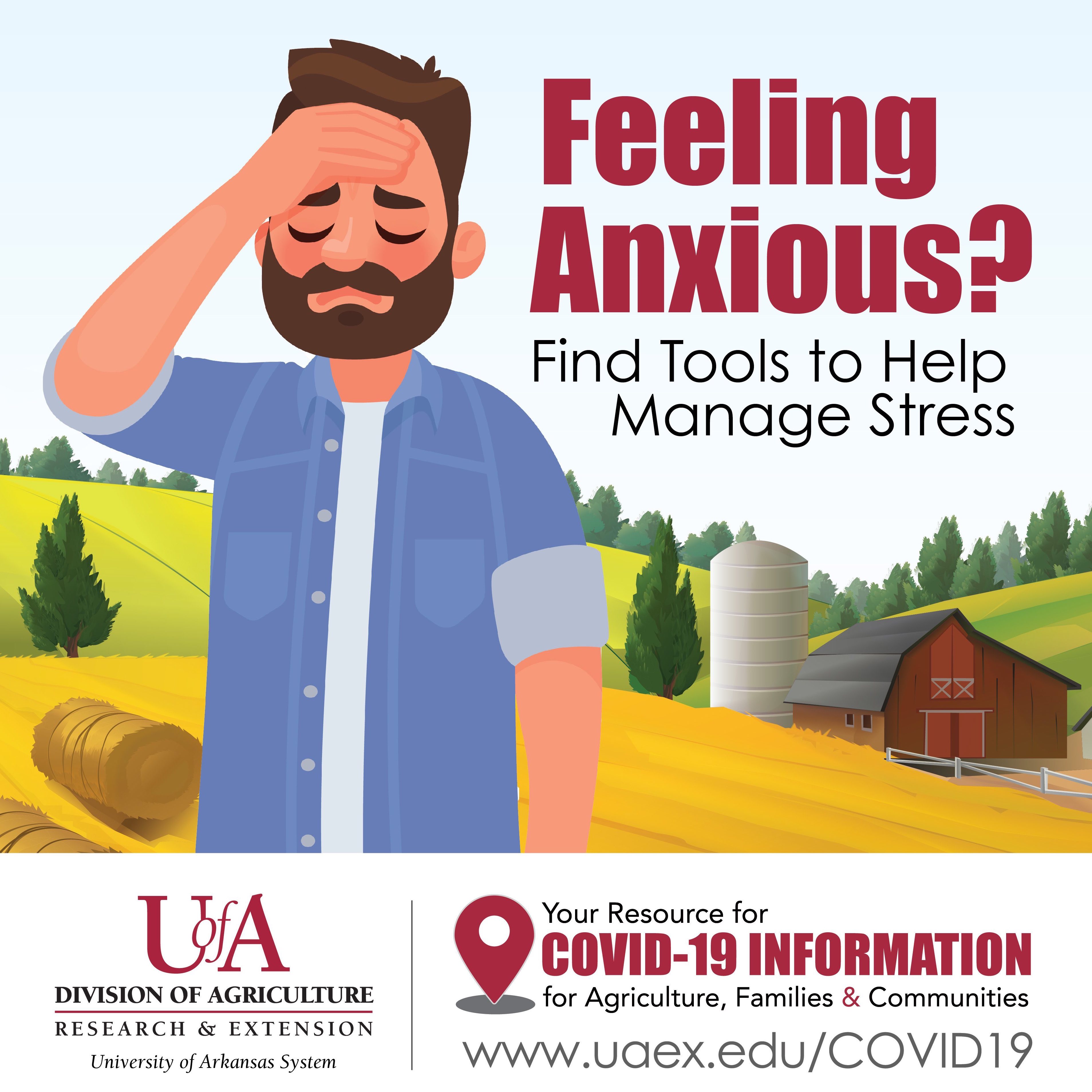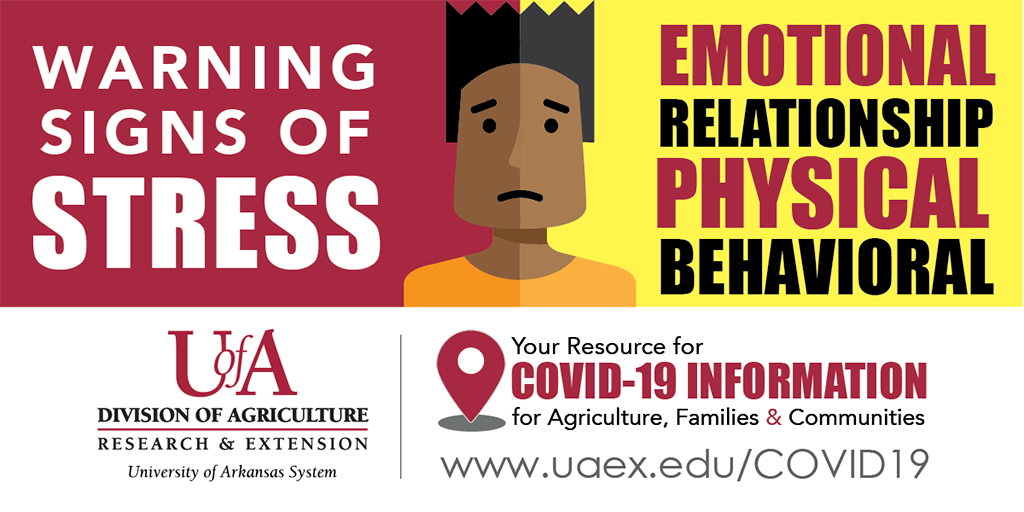Farmers and stress: COVID-19 adds fuel to the fire
By Rebecca Simon, program associate, family and consumer science
For several years, farmers have faced increasingly high levels of stress as markets tanked, weather destroyed crops, and hard work and long hours proved inadequate to ensure profits.
Now, COVID-19 adds one more burden to an already heavy load.
Producers, their families and local businesses are facing heavy stress from the virus.
What are some stressors that farmers and their families could be facing as a result of COVID-19?

- Supply chain limitations
- Limited access to supplies needed to maintain farming operation
- Farmers who sell directly to consumers are either losing or gaining sales, depending on whether they rely too much on restaurants and institutions, or can either sell farm products online or deliver them directly to consumers.
- Inability to pay employees
- Not having workers available to manage livestock or to plant and harvest crops
- Loss of income that leads to financial issues
- Market fluctuation
- Concerns about family well-being
So how does stress affect us?
Stress is made apparent in a variety of ways as a person responds physically, mentally or emotionally to existing pressures or concerns. Each person is affected differently and becoming familiar with common ways stress affects a person is helpful.
Each person who is affected by stress may respond physically, mentally or emotionally in different ways to such pressures. Conducting regular “self-checks” is important to be aware of your own experience with stress and what steps you can take to stay out of the “high stress” zone.
Signs of stress are warning signals, like the flashing red light on the dashboard of a car, that are warning you to pay attention, slow down and take steps to check for difficulty. These warning signals can occur in the physical, emotional, behavioral and relationship dimensions of a person’s life.

What are some warning signs of stress you might experience?
- Emotional: Irritable, feeling discouraged or hopeless, anxiety, panic
- Physical: headaches, back and neck aches, body fatigue, stomach issues
- Behavioral: Inability to relax, trouble making decisions, increased use of alcohol or drugs
- Relationship: Communication difficulties, avoiding others, verbal or physical outbursts
Managing Rural Stress Model
Having a process that you can use in managing the pressures that impact your family, your farming operation and your life in general is helpful. The Managing Rural Stress Model is designed to provide you with a process for thinking about the different stressors you may experience and strategies for managing them more effectively.
The five steps are: (1) assess needs and impacts, (2) identify and access resources, (3) pursue good-quality decisions, (4) connect with sources of support and (5) use effective coping strategies.
Step 1: Assess needs and stressor impacts
- How big is the “splash” in your life due to a stressor?
- What needs come up (more income, sleep, etc.)?
- How manageable is the impact? Ranging from not at all manageable to very manageable.
Step 2: Identify and Access Resources
- What resources will help you?
- Take stock of resources available.
- Types of resources — material, personal, etc.
- Recognize and use resources effectively.
Step 3: Pursue good-quality decisions — How to respond?
- Gather information
- Assess options
- Discuss key decisions with others
- Clarify goals
- Be open to change
Step 4: Connect with Sources of Support — Where to connect?
- Assess supports
- Informal – family, friends
- Formal – faith, professionals, other
- Willing to approach others for support
Step 5: Use Effective Coping Strategies
A final step in the process of managing stress requires a person to think about the strategies for using resources or coping with stresses that can be used and whether they are effective.
Among coping priorities, a few should receive emphasis. These will enable the individual farmer or rancher to cope better through time.
Rest and Renew Yourself
- You can’t care for your farm or family well if you don’t care for yourself.
- Explore sources of personal renewal that you value (faith, nature, hobby, etc.).
- Build in “rest breaks” daily and/or weekly
- Connect with others who give you strength, support.
Healthy Communication
- Be willing to share your stresses or concerns with others
- Talk and share with others who understand or who you can trust
- Listen to one another
- Avoid withdrawal or anger as your primary mode of communication
Focus on Relationships
- Reassure family members of love and commitment
- Work through conflicts that may occur
- Follow consistent family routines that give security, such as family meals together
For more resources on managing stress, check out our Life Skills and Wellness page.